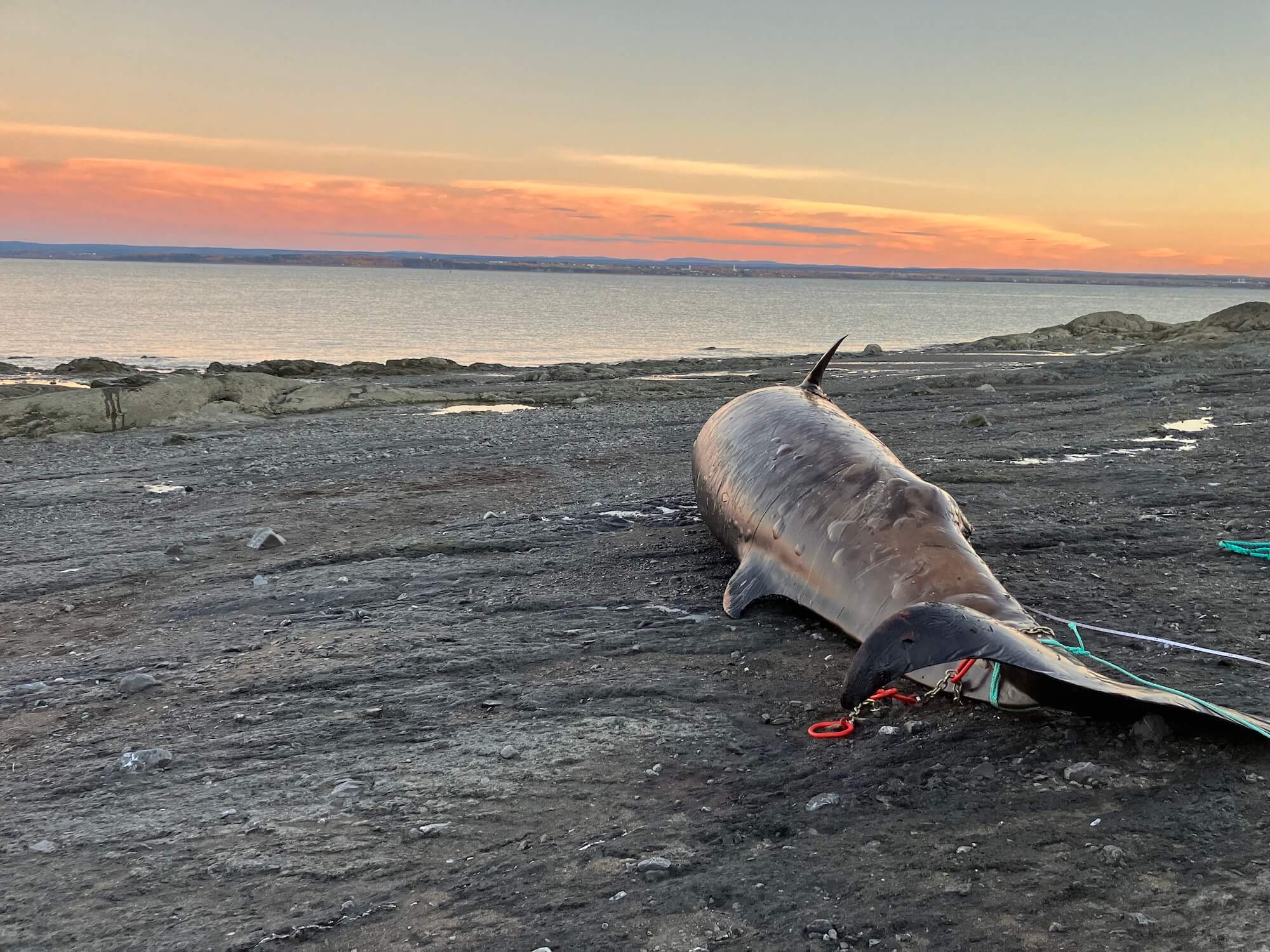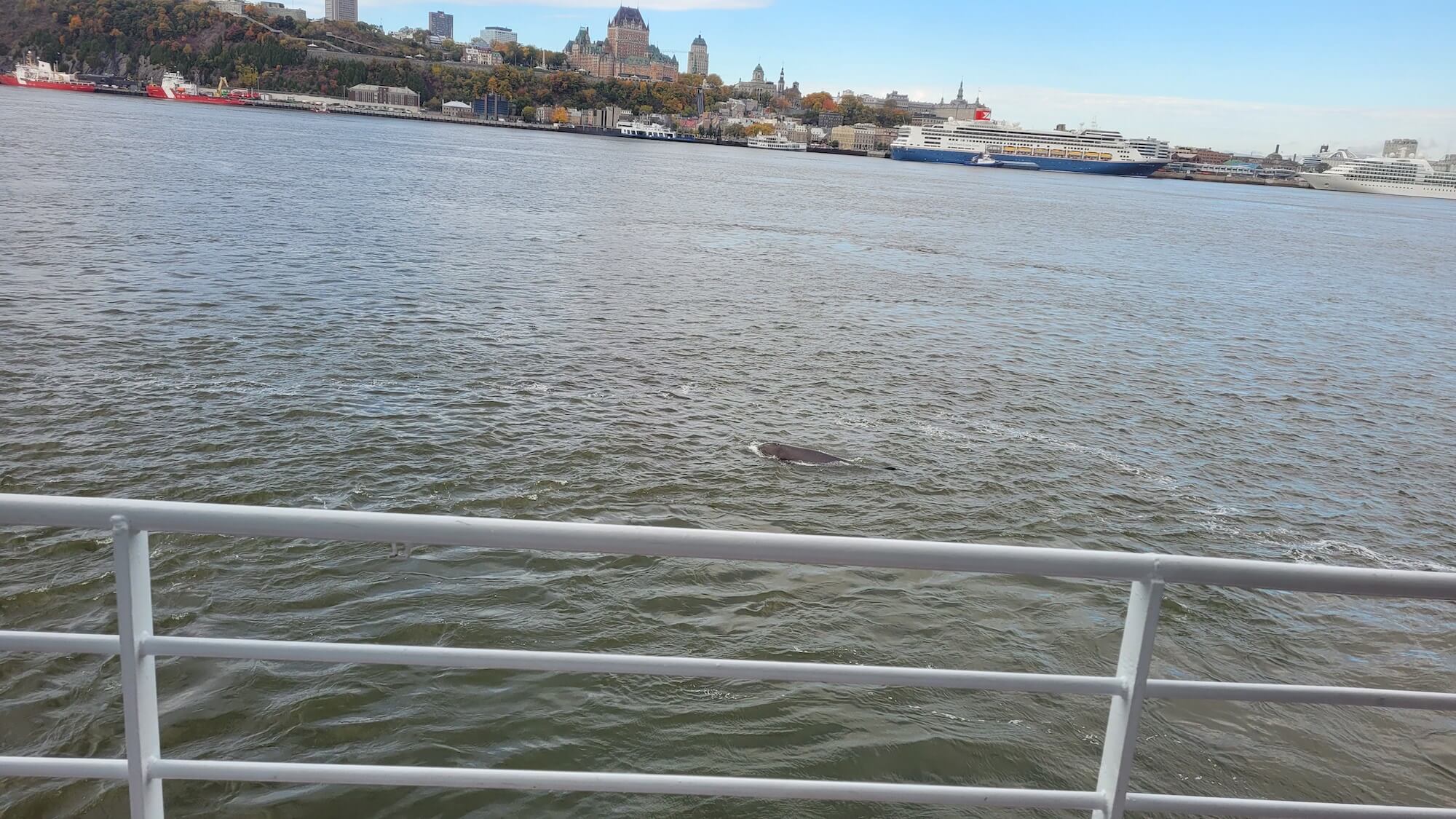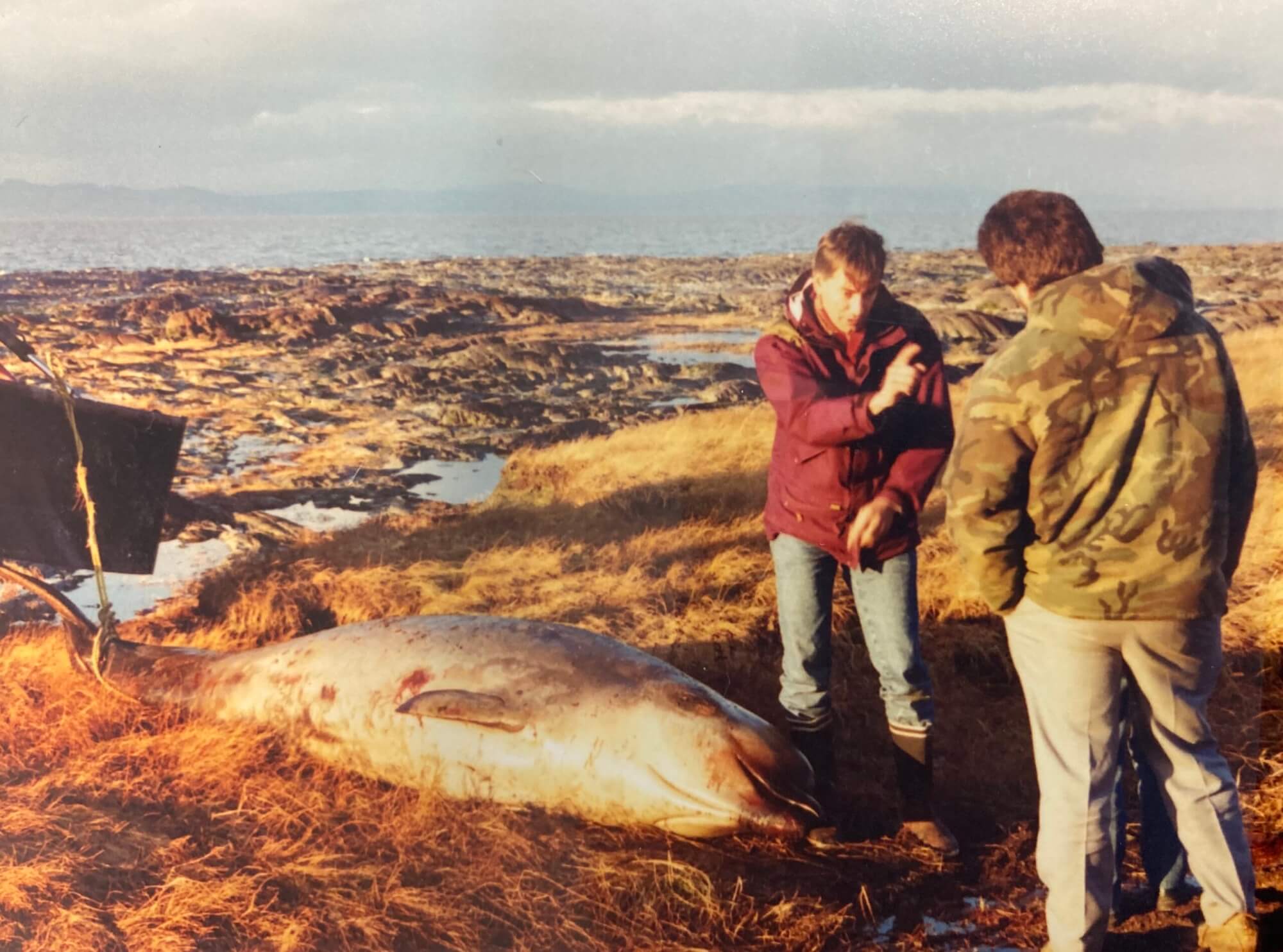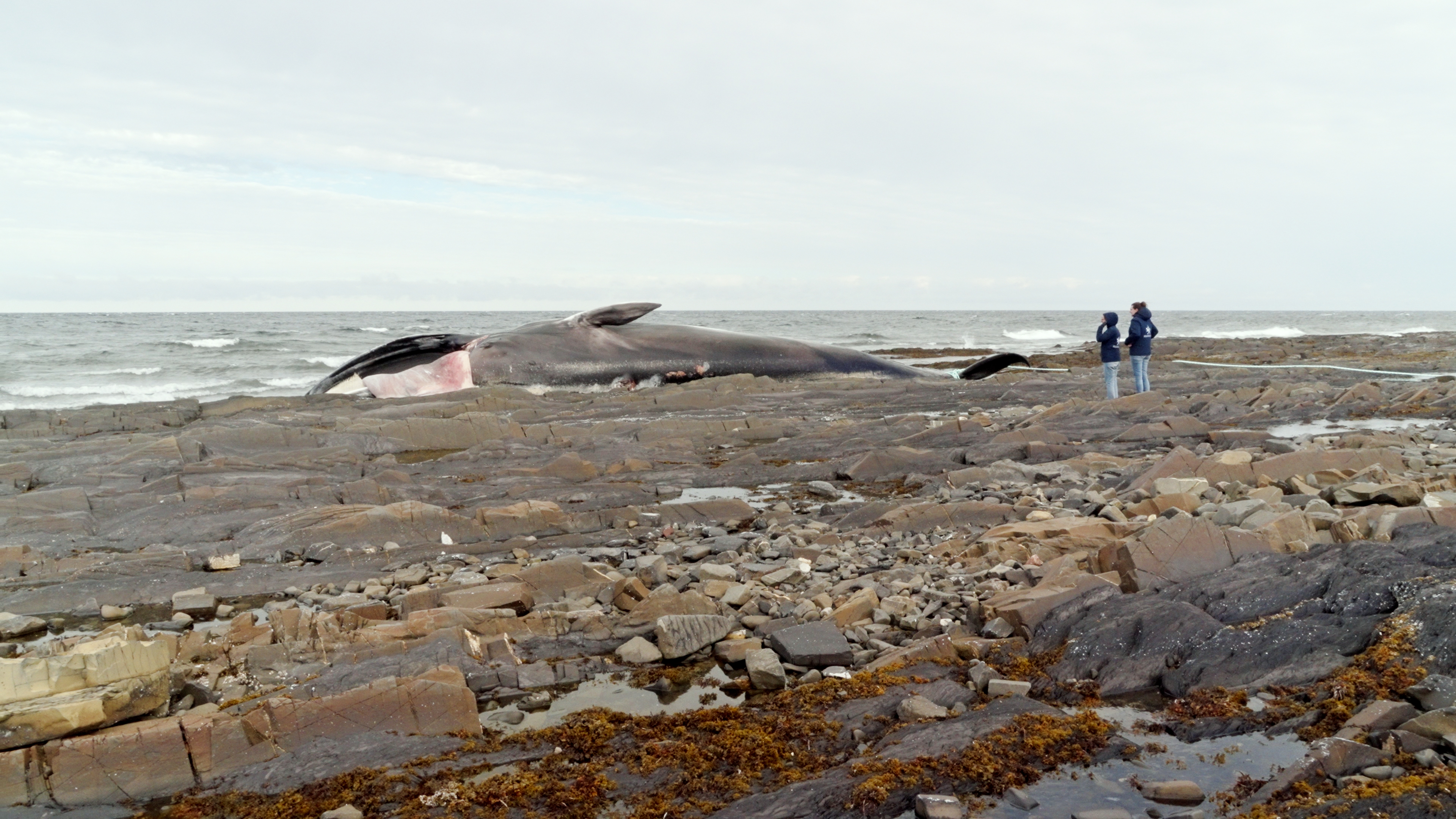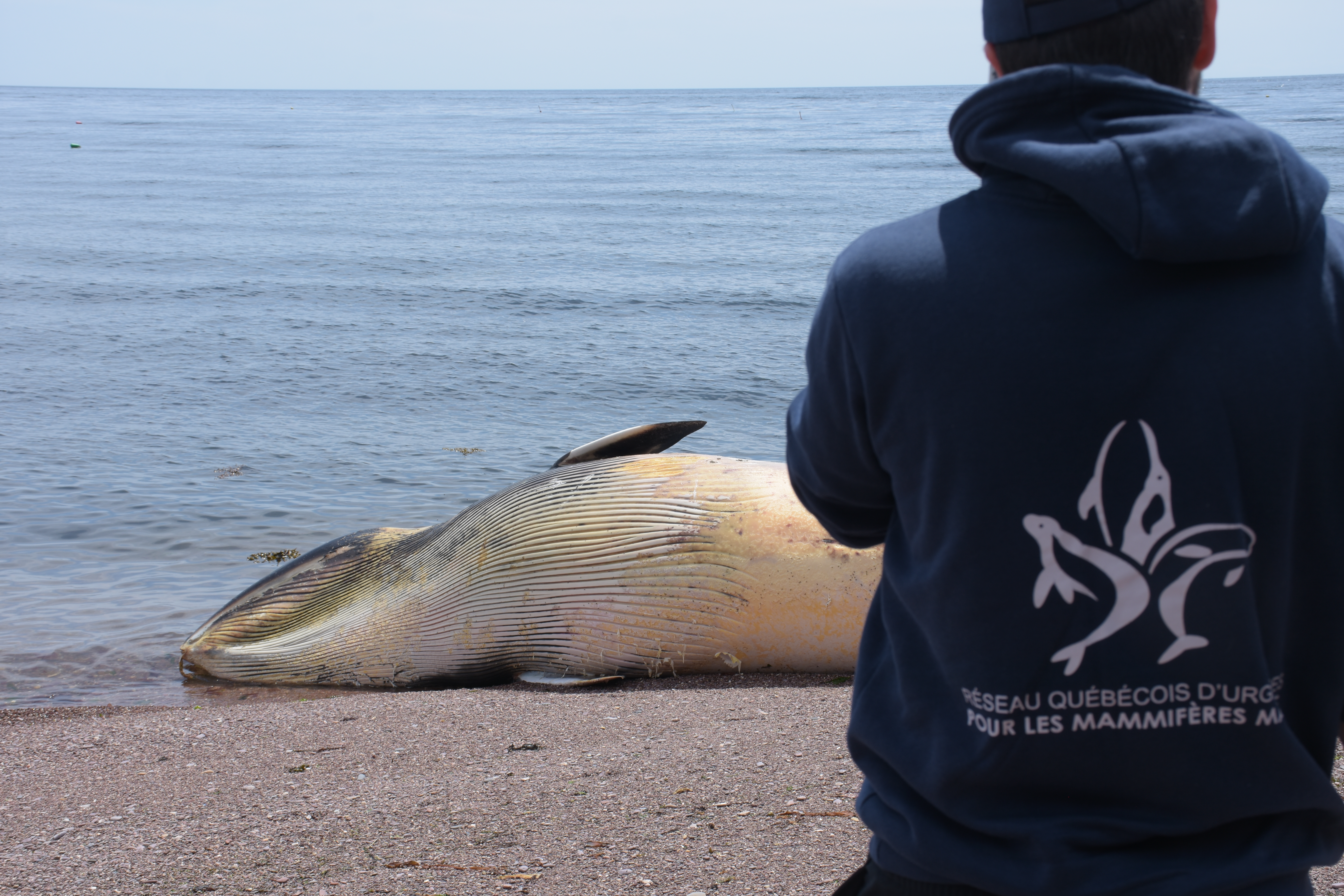On October 23, the carcass of a northern bottlenose whale was discovered on the banks of Saint-Jean-de-l’Île-d’Orléans, near Quebec City. Thirty years earlier, almost to the day, an individual of the same species was found beached in Montmagny. The news quickly gets picked up by the media, and for good reason! The species is rare in the St. Lawrence and even more exceptional as far upstream as Quebec City. Let’s take a closer look at this very special occurrence!
Detour via Montmagny and Lévis?
Over a week before the carcass was discovered, a few reports were received of a whale in the same general area. On Thursday, October 17, the Quebec Marine Mammal Emergency Response Network (QMMERN) reported the presence of a whale swimming upstream in the vicinity of the ferry crossing between Quebec City and Lévis. Another video showing a beaked whale near the Montmagny marina was also taken in the early evening hours that same day. Could this be the same individual that later ran aground? Impossible to know for sure.
Scientific data for a better understanding
At the time of the field intervention, several samples were collected to learn more about this individual. For example, these samples will help determine which population of northern bottlenose whale this individual belonged to. GREMM’s scientific director, Robert Michaud, explains that the species is present in several locations. “They are found in the Atlantic, off the coast of Nova Scotia, as well as off the coast of Newfoundland and in the Davis Strait.” The Committee on the Status of Endangered Wildlife in Canada (COSEWIC) has designated the Scotian Shelf population as “endangered.”
In their necropsy of the carcass, scientists were unable to determine any obvious cause of mortality. However, the team did find hundreds of squid beaks in the whale’s stomach. The species is known for its diving skills, both in terms of depth and time spent under water. This enables it to access food resources found over 1,000 m below the surface, including squid!
It can therefore be concluded that the animal must have been feeding well, which rules out hypotheses of health issues that are often raised in these types of events. As with many other cases of cetaceans outside their usual habitats, the reasons for the presence of this individual in the St. Lawrence will undoubtedly remain shrouded in mystery.
Challenges for the QMMERN
Managing this case was a major challenge for the QMMERN. The organization is accustomed to dealing with seals in this sector, but not beaked whales! Media coverage and the presence of curious onlookers helped raise public awareness. From a technical standpoint, the size of the carcass (over 2,500 kg) meant that a front-end loader and a ten-wheeler were required to move it. Finding a suitable location to perform the necropsy was no easy task either! Timely and efficient collaboration from the City of Québec, local excavation companies and citizens enabled the QMMERN to coordinate the transport of this carcass to an appropriate disposal site. This allowed Quebec’s wildlife health centre (CQSAS) to perform a necropsy to determine the cause(s) of mortality.
30 years ago… Another stranded beaked whale
For some, the presence of this beaked whale brings back memories. “It’s ironic that almost exactly 30 years ago, on November 8, 1994, we performed a necropsy on an adult female northern bottlenose whale… in Montmagny,” recalls Stéphane Lair, a wildlife health veterinarian who also participated in this year’s beaked whale necropsy. At the time, the team determined that it was a nursing female; the carcass of a juvenile was found a few days later.
Patrice Corbeil, director of the Marine Mammal Interpretation Centre in Tadoussac, also recalls this incident from 1994. Part of the individual’s skeleton is on display at the CIMM! “We recovered the skull, which is all we have left of this whale,” he points out. In 2021, two beaked whales were stranded alive in Chaleur Bay: one of the individuals died and its skeleton was also recovered by the CIMM team. As for the skeleton of the beaked whale from Île d’Orléans, the wheels are in motion to send part of it to the Musée de la Mer in the Magdalen Islands.
Important
Should you see a whale or a seal outside its normal range, promptly contact Marine Mammal Emergencies at 1-877-722-5346. A QMMERN member can then give you instructions and put the necessary measures into place.


